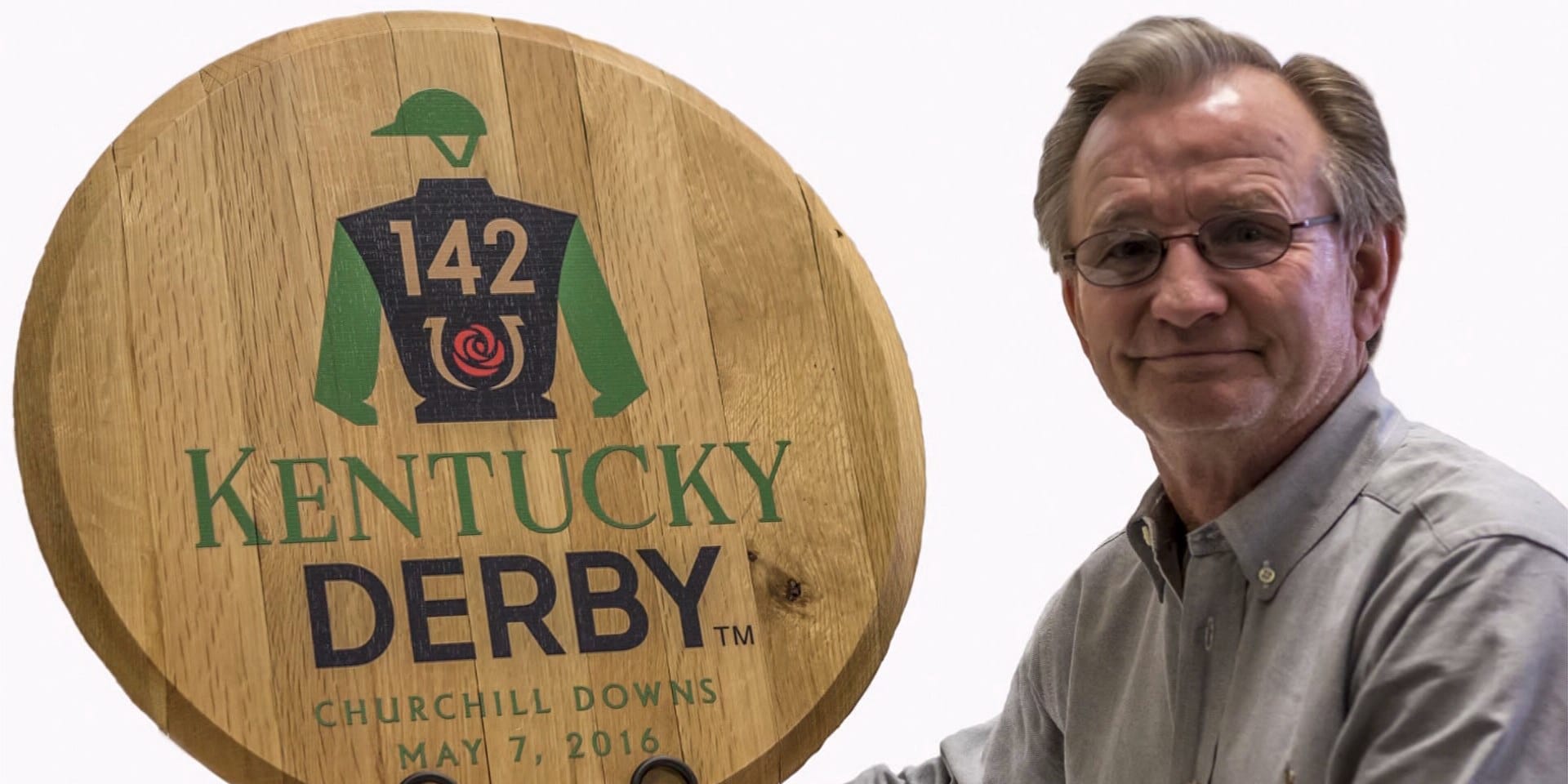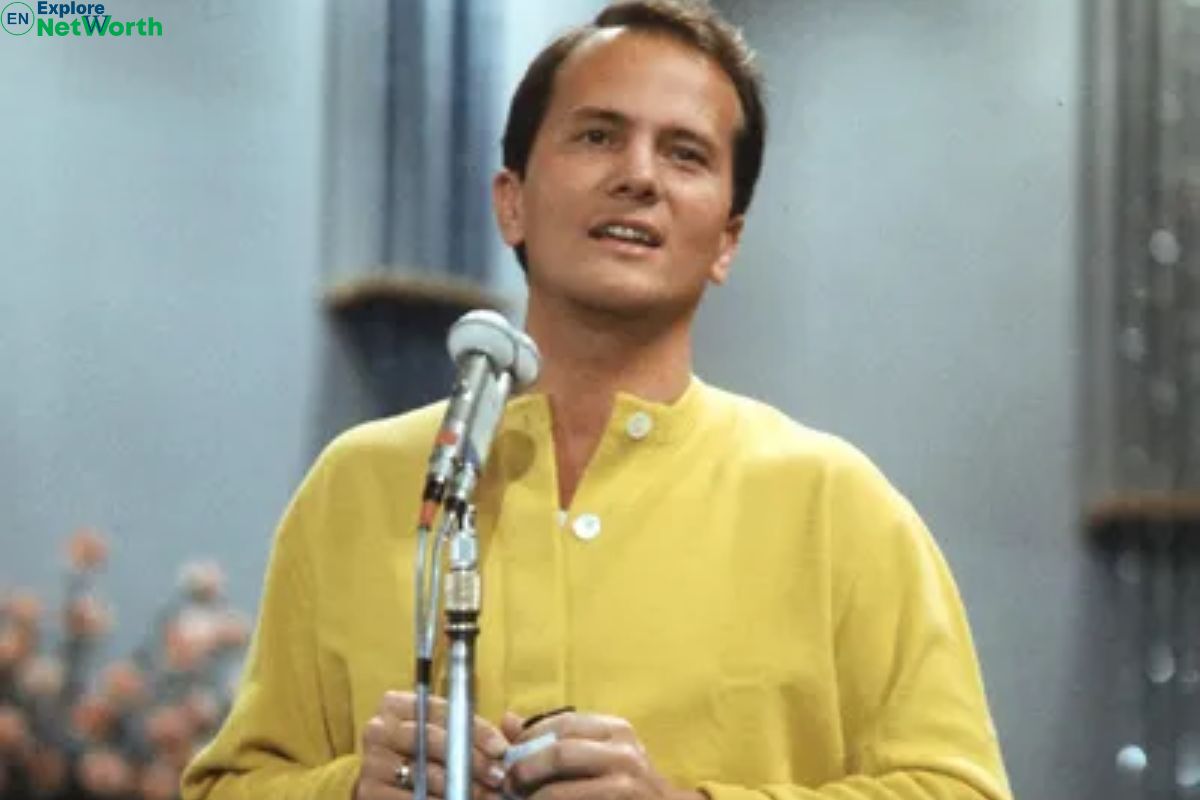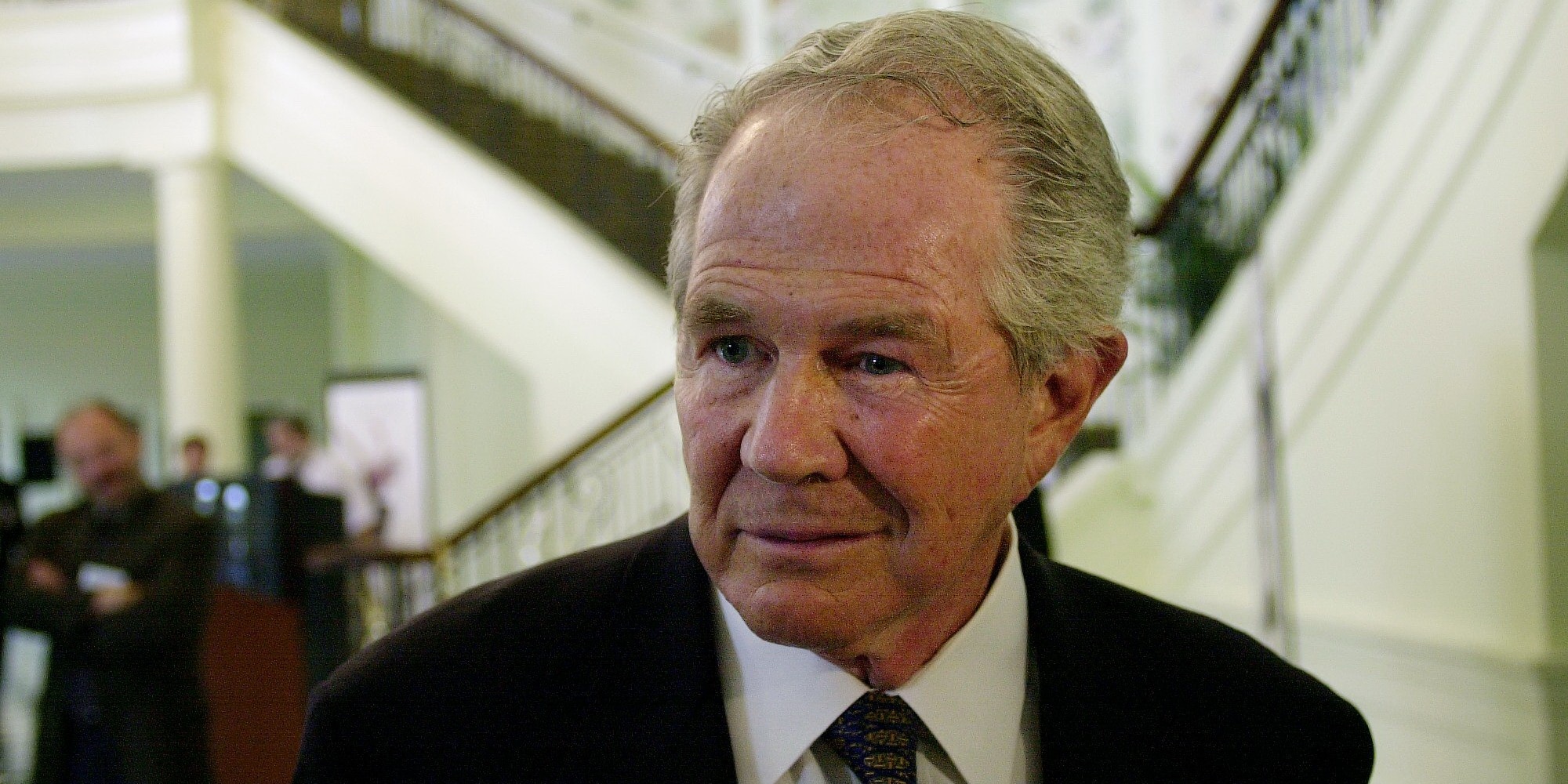Unpacking Pat Day's Net Worth: A Look At The Legendary Jockey's Fortune
Ever wondered about the financial journey of a true horse racing icon? Pat Day, a name that echoes through the annals of thoroughbred history, achieved incredible success on the track. His career was, very, marked by numerous victories and a quiet dedication to his craft, which, in a way, captivated fans for decades.
For many who followed his races, Pat Day wasn't just a jockey; he was, like, a symbol of grace and power in the saddle. People often think about the big wins, the trophies, and the glory, but, you know, what about the financial side of such a distinguished career?
It's natural to be curious about how much a person like Pat Day might have accumulated over a lifetime of high-stakes competition. We're going to explore the various elements that contributed to his wealth, giving you a clearer picture of his financial standing, and, you know, what a life dedicated to racing can truly mean.
Table of Contents
- Who is Pat Day? A Glimpse into a Racing Legend
- The Racetrack Riches: How Jockeys Earn Their Keep
- Key Victories and Their Financial Impact
- Life Beyond the Saddle: Post-Retirement Ventures
- Estimating Pat Day's Net Worth
- Factors Influencing a Jockey's Wealth
- Frequently Asked Questions About Pat Day's Finances
- Conclusion
Who is Pat Day? A Glimpse into a Racing Legend
Pat Day is, really, a name synonymous with horse racing excellence. Born in Brush, Colorado, his journey into the demanding world of thoroughbred racing began at a young age. He quickly made a name for himself, displaying a natural talent for riding and an almost uncanny connection with the horses he guided. His calm demeanor and strategic approach to races set him apart from many of his peers, too.
He wasn't just about speed; Pat Day was, in some respects, known for his patient rides, often waiting for just the right moment to make his move. This calculated style brought him immense success, earning him the respect of trainers, owners, and fans alike. His career spanned several decades, a testament to his enduring skill and passion for the sport, you know.
Personal Details & Biography Table
| Detail | Information |
|---|---|
| Full Name | Patrick Alan Day |
| Date of Birth | October 11, 1953 |
| Place of Birth | Brush, Colorado, USA |
| Career Span | 1973 – 2005 |
| Total Wins | 8,803 (4th all-time at retirement) |
| Eclipse Awards | 4 (Outstanding Jockey: 1984, 1986, 1987, 1994) |
| Kentucky Derby Wins | 1 (1992, Lil E. Tee) |
| Preakness Stakes Wins | 3 (1985, 1990, 1994) |
| Belmont Stakes Wins | 1 (1989) |
| Breeders' Cup Wins | 12 |
| Hall of Fame | Inducted into the National Museum of Racing and Hall of Fame in 1991 |
| Retirement Date | August 1, 2005 |
The Racetrack Riches: How Jockeys Earn Their Keep
Understanding a jockey's net worth really means looking at how they earn their money in the first place. It's not as straightforward as just winning a race and taking home the whole purse, you know. Jockeys typically get paid in a couple of ways: a "mount fee" for each race they ride, whether they win or not, and then a percentage of the prize money if their horse finishes in a money-earning position.
The mount fee is usually a set amount, which can vary by track and the type of race. It's, like, a base payment for their time and skill. This fee helps cover their daily expenses, their agent's commission, and the general costs of being a professional rider. For a jockey like Pat Day, who rode thousands of races, these mount fees alone would add up significantly over a long career, that's for sure.
Win Percentages and Purses
The real money, though, comes from the winning percentages. When a horse wins or places in a race, the jockey typically receives a percentage of the owner's share of the purse. This percentage can range, but it's often around 10% for a win, and a smaller percentage for second or third place. So, if a race has a purse of, say, $100,000, and the winning owner gets 60% of that ($60,000), the jockey might receive 10% of that $60,000, which is $6,000. This is just for one race, mind you.
For major races, the purses can be absolutely massive. Think about the Kentucky Derby or the Breeders' Cup, where purses can run into the millions. A 10% cut of a multi-million dollar winning share can mean a very substantial payday for a jockey. Pat Day, with his numerous high-profile victories, certainly benefited from these larger purses, which, you know, really boosted his earnings.
However, it's also important to remember that jockeys have many expenses. They pay their agents, valets, and sometimes even their own insurance. They also have travel costs, especially if they're riding at different tracks. So, while the gross earnings might seem huge, the net amount they take home is, you know, a bit less, sometimes significantly so.
Sponsorships and Endorsements
Beyond the race earnings, top jockeys, like other prominent athletes, can also bring in money through sponsorships and endorsements. Brands might want to associate themselves with successful riders, seeing them as excellent spokespeople. This could involve wearing branded gear, appearing in advertisements, or attending promotional events. For a jockey with Pat Day's reputation and widespread recognition, these opportunities would, naturally, be quite valuable.
These deals can add a considerable sum to a jockey's overall income, separate from their race earnings. It's, in a way, another layer of financial opportunity that comes with being at the pinnacle of their sport. A jockey's marketability goes up with every major win and every year they spend at the top, so, really, it makes sense that companies would want to partner with them.
Key Victories and Their Financial Impact
Pat Day's career was filled with memorable wins, and each of these victories, especially the major ones, contributed significantly to his overall financial picture. He wasn't just winning small races; he was consistently competing and winning at the highest levels of the sport, which, you know, brings with it the biggest prize money.
His consistency and ability to perform under pressure meant he was often sought after for rides in the most prestigious races. This demand, in turn, meant he was always in a position to earn from the largest purses available in horse racing. It's almost, like, a snowball effect: success breeds more opportunities for success, and more earnings.
Kentucky Derby Triumphs
The Kentucky Derby is, arguably, the most famous horse race in the United States, and winning it is a career-defining moment for any jockey. Pat Day captured the Derby in 1992 aboard Lil E. Tee. This single victory, while just one of his thousands, would have come with a substantial share of the purse. The prestige alone of being a Derby-winning jockey also opens doors for future high-value mounts and, as we discussed, endorsement deals. It's a very, very big deal for a jockey's standing and, consequently, their earnings potential.
Beyond the direct earnings, a Derby win elevates a jockey's profile immensely. They become a household name, at least within racing circles, and that recognition can translate into more opportunities for lucrative rides. So, that one win, you know, really had a ripple effect on his entire career.
Breeders' Cup Successes
Pat Day's record at the Breeders' Cup is, quite frankly, outstanding. He won 12 Breeders' Cup races throughout his career, a remarkable feat that places him among the all-time leaders. The Breeders' Cup is often called the "World Championships of Thoroughbred Racing," and its races carry some of the largest purses in the sport, second only to the Triple Crown events.
Each of these 12 victories would have added a significant amount to his career earnings. Winning a Breeders' Cup race is a huge achievement, and doing it a dozen times speaks volumes about his skill and longevity. These wins are not just about the money; they solidify a jockey's reputation as a top-tier performer, ensuring they remain in demand for the best horses and the biggest races, which, you know, just keeps the earnings coming in.
Life Beyond the Saddle: Post-Retirement Ventures
When a jockey retires, especially one who has been as active and successful as Pat Day, it's natural to wonder what comes next. Retirement from a physically demanding sport like horse racing can mean a complete shift in lifestyle and, of course, income streams. Pat Day retired from racing in 2005, citing a desire to focus on his family and his faith.
Many athletes, after leaving their sport, pursue various avenues. Some become commentators, others go into training, and some, you know, step away entirely from the public eye. For someone with Pat Day's experience and deep understanding of horses, there are, naturally, many paths available within the racing world, even if not directly riding.
While Pat Day has largely maintained a more private life since his retirement, his legacy in racing is, obviously, undeniable. He has been involved in some charitable work and has occasionally made appearances related to horse racing. These post-retirement activities, while perhaps not generating the same level of income as his riding career, can still contribute to his overall financial picture through speaking fees, advisory roles, or, you know, other engagements that leverage his vast experience.
Estimating Pat Day's Net Worth
Pinpointing an exact net worth for a private individual like Pat Day is, frankly, quite difficult. Public figures, especially athletes, often have their net worth estimated by various financial publications, but these are almost always approximations based on publicly available data like career earnings, known endorsements, and general market trends. They don't account for personal investments, expenses, or other private financial dealings, you know.
What we do know is that Pat Day's career earnings from racing alone were substantial. Over his career, his mounts earned over $220 million. As we discussed, a jockey typically gets a percentage of these earnings. Even if we conservatively estimate his take-home percentage (after agent fees, expenses, etc.) to be around 5-7% of the total purse money won by his mounts, that still puts his gross career earnings in the multi-million dollar range, which is, obviously, a lot of money.
Various sources have estimated Pat Day's net worth to be in the range of several million dollars. These figures are, generally, speculative but reflect the significant income potential of a highly successful jockey. It's important to remember that these estimates are, more or less, educated guesses, as the true figures remain private. However, it's clear that his career provided him with a very comfortable financial foundation.
Factors like wise investments over his long career, any real estate holdings, or other business ventures he might have pursued would also play a big role in his current financial standing. Without specific public disclosures, these elements remain, you know, largely unknown.
Factors Influencing a Jockey's Wealth
A jockey's wealth isn't just about how many races they win. There are, actually, so many other things that play into it. For one, the length of their career matters a lot. Pat Day had a very long and successful career, spanning over three decades. This consistent income stream over a long period allows for more accumulation of wealth than a shorter, even if equally brilliant, career.
Injuries are, like, a huge factor in a jockey's life. It's a dangerous sport, and serious injuries can lead to long layoffs, which means no income from riding. They can also lead to significant medical expenses. Pat Day, thankfully, had a relatively healthy career compared to some, allowing him to maintain his earning potential.
Then there's the financial management aspect. How a jockey manages their earnings, whether they invest wisely, save for retirement, or spend lavishly, will, obviously, have a huge impact on their net worth down the line. It's not just about what you earn, but what you keep and how you grow it, you know.
Taxes are another big consideration. Professional athletes are subject to significant taxes on their earnings. Agent fees, as mentioned, also take a cut. All these deductions mean that the gross earnings are quite different from the net income a jockey actually takes home. So, it's a bit more complicated than just looking at the prize money figures.
Frequently Asked Questions About Pat Day's Finances
People often have questions about the money side of a jockey's life, especially when it comes to someone as prominent as Pat Day. Here are a few common inquiries:
How much did Pat Day win in his career?
Pat Day's mounts earned over $220 million in purse money during his career. This figure represents the total amount won by the horses he rode. His personal share of this would be a percentage, typically around 5-10% of the owner's portion of the purse, along with mount fees for every race he rode, regardless of the outcome. So, his direct earnings from racing were, naturally, in the tens of millions of dollars over his career.
What is Pat Day doing now?
Since his retirement from racing in 2005, Pat Day has, more or less, stepped away from the intense public spotlight of the track. He has focused on his family and his faith, becoming involved in Christian ministry. While he occasionally makes appearances related to horse racing, he largely lives a private life, away from the daily grind of the racing circuit. He's, you know, enjoying a quieter pace.
Who is the richest jockey?
Determining the "richest" jockey can be tricky, as net worth figures are often estimates. However, jockeys like John Velazquez, Mike Smith, and Frankie Dettori are often cited among the highest earners due to their long, highly successful careers and numerous wins in major races with enormous purses. These jockeys have also likely benefited from significant endorsement deals and, you know, smart financial planning. Pat Day certainly belongs in the conversation of top-earning jockeys in history, too.
Conclusion
Pat Day's journey from a young rider to a Hall of Fame jockey is, truly, a remarkable story of talent, perseverance, and dedication. His career earnings from the track alone were incredibly substantial, placing him among the elite earners in the history of horse racing. When we look at pat day net worth, it reflects not just the prize money from his many victories, but also the consistent income from mount fees over decades, and, you know, likely some valuable endorsement deals.
While the exact figures remain private, it's clear that his life's work in the saddle provided a very comfortable financial standing. His story serves as a reminder that success in sports, especially at the highest levels, can indeed lead to significant financial rewards. It's a testament to the hard work and skill required to compete at that level, and, you know, what a truly legendary career can bring. Learn more about horse racing history on our site, and perhaps explore the careers of other racing greats here.

Pat Day Net Worth - Net Worth Post

Pat Boone Net Worth 2023: How Did Boone Get Rich?

Pat Robertson Net Worth - Net Worth Post